KINLOCH CASTLE
Selection of research by George W. Randall, co-founder in July 1996 and from 2001 former Vice Chairman of Kinloch Castle Friends' Association.
.
For seven years from 1879 John Bullough, Sir George's father, rented the
26,400 acre island of Rum for sport ... ...
in 1886 he succeeded in buying the island which he bequeathed to his
twenty-one year old son George upon his death on 25 February 1891 aged fifty-two.
(George was not actually twenty-one until 28 February, three days later.)
The island covers 26,400 acres or just over 41 square miles.
Diamond shaped eight by eight miles,
the heavily indented coastline measures 55 kms. or 34 miles.
PORT-NA-CARANEAN, - HARBOUR OF THE WINDINGS
IS A SITE OF NATIONAL IMPORTANCE.
in the basement laboratory / classroom much used by university students and the public.
>< >< + >< ><
Isle of Skye beyond.
> + <
> + <
>< + >< + >< + >< + > * < + >< + >< + >< + ><
the Isle of Rum in his father's Will and a 50% interest in the family business,
Howard & Bullough, Ltd., Cotton Machinery Manufacturers,
Globe Works, Accrington, Lancashire;
for many years the annual dividends financed his lifestyle.
At its peak the Accrington factory employed 6,000 workers.
Howard & Bullough, Globe Works, Accrington, Lancashire*,
were manufactures of machinery for the cotton industry sold world-wide,
thus the name, Globe Works. Their product was far superior to its competitors,
no more so than in the United States where it was much preferred to the so called home made equivalent.
To dissuade American cotton factories buying the British made product
the American Government imposed a 40% import tariff.
In 1897, in order to get round America's draconian tariff,
Howard & Bullough opened a manufacturing facility in the United States at Attleborough, eight miles north-east of Pawtucket, Rhode Island.
The Howard & Bullough American Machine Company employed 2,000 workers.
Link address:
https://www.blogger.com/blog/post/edit/3149945780622106744/1090662021730332415
In September 1892. twenty-two year old George Bullough set off with his friend, Robert Mitchell on a three-year long World Grand Tour.
Photographs purchased and taken, (six hundred in all, those of Japan hand coloured), were mounted in twenty albums which today are in the library at Kinloch Castle.
All images have been re-photographed by the author, fully researched,
and mounted in his personal archive.
Posts relating to each album can be found in my
Art Treasures of Kinloch Castle blog
Shortly after his return from his three year long World Grand Tour
George Bullough purchased a magnificent ocean-going steam yacht, Maria,
which he renamed Rhouma and immediately embarked
on a six-month long "Supplementary Cruise".
Link to Sir George Bullough's yachts, Rhouma I and Rhouma II:
https://www.blogger.com/blog/post/edit/3149945780622106744/5755713141296297193
SS RHOUMA AS A HOSPITAL SHIP IN ANGLO/BOER WAR
It was at this time George Bullough commissioned plans for Kinloch Castle,
as his Highland home on the island of Rum he inherited in his father John's Will
with architects, Leeming and Leeming, Construction took three years, 1897-1900.
The east façade of the castle faces Loch Scresort.
Bullough was knighted in 1901 for loaning, fully equipping
and staffing his yacht, Rhouma, as a hospital ship for wounded officers and men
during the early months of the Boer War, 1899-1902.
.
Link to S.S. RHOUMA AS BOER WAR HOSPITAL SHIP:
TESTIMONIAL OF APPRECIATION FROM THE CITY OF CAPETOWN:
>< >< >< >< >< ><
>< >< >< + >< >< ><
The stag reflected in the mirror carries the attribution:
"Shepherd, September, 1909."
>< >< >< + >< >< ><
THE LIBRARY
>< >< >< + >< >< ><
and this extract from the
Bullough Pedigree in the Kinloch Castle Library reads -
Looks like RHUM has it!
>< >< >< >< >< >< >< >< >< >< >< ><
Room configuration and use in 1900 on completion of building.
STAINED GLASS WINDOWS
+ < * > +
MAGNETO WALL TELEPHONE
MARRIAGE ... ... ALL CHANGE ... ...
https://www.blogger.com/blog/post/edit/3149945780622106744/6573515513542092755
>+< >+< >+< >+< >+< >+< >+< >+< >+< >+< >+< >+< >+< >+< >+<
"Granted in the fourth year of the reign of our Sovereign Lord,
Edward VII, 21 April 1904."
Link to RATNER SAFE BLOG:
https://www.blogger.com/blog/post/edit/3149945780622106744/78682409145580646
COAT OF ARMS OF SIR GEORGE BULLOUGH.
Special Edition Mugs available from:
>*< >*< >*< >*< >*< > * < >*< >*< >*< >*< >*< >*<
>*< >*< > + < >*<>*<
A wag placed a small pebble he (or she) had also collected at Guirdil
by the side of Captain Webber's stone with a hand written note stating:
"This pebble was carried from Guirdil Beach to Kinloch Castle,
weight 3 ounces."
Regrettably not photographed.
>*< >*< >*< >*< >*< >*< >*< >*< >*< >*< >*< >*<
The majority of my blog photographs were taken on conventional film between 1992 and 2010, when I acquired a digital camera.
Where specific research Blogs have previously been posted I have included
a link to the relevant posting for further information,
e.g. THE RATNER SAFE; S.Y. RHOUMA; STOLEN ITEMS;
and the ORCHESTRION.
The images below are a selection of pictures in my Kinloch Castle archive
taken since my first one day only visit in 1992.
The following year I stayed with a friend in Foxglove Bothy for a week,
and in subsequent years in Kinloch Castle when run as a hotel.
The front of house hotel operation ceased in 1997 after which I stayed regularly in the excellent Hostel, (the former Servant's Quarters), for 7 - 10 days at a time, researching the castle, its contents, former policies, greenhouse, and the amazing island.
I was fortunate in the early years to meet sons of former employees of
Sir George Bullough who themselves had lived on the island, who had first hand
recollections and photographs which I was permitted to copy;
notably two Mcnaughtons, sons of Duncan Mcnaughton, piper and Head Keeper,
and Jim Smith, who grew up un the island, attended the school and was very involved with the care of the Rum Ponies.
+
My thanks to all who were so patient with my questions and
to Scottish Natural Heritage and the late Magnus Magnusson,
its former Chairman, for granting me unrestricted access to Kinloch Castle for my research.
It opened my eyes to a passion that continues to this day.
>*< >*< >*< >*< >*< >*< >*< >*< >*< >*< >*< >*<
More are being added ... ... Please Keep Viewing!
Become interested, become involved -
HELP SAVE KINLOCH CASTLE WITH CONTENTS
IN-SITU FOR FUTURE GENERATIONS.
Please read notes at end of this Post.
> + <> + <> + <> + <> + <> + <> + <
THE 26,400 ACRE ISLAND OF RUM
The island was bought as a Sporting Estate by John Bullough.
With the building of Kinloch Castle by his son many guest sportsmen and women ventured forth to try their luck;
the names of the successful are recorded in the three Game Books,
PAPADIL LODGE
of which suggest it looked the same as its counterpart (above) at Harris.
Sir George and Lady Bullough spent their honeymoon at Papadil Lodge.
Sadly its remote location made the area a tempting overnight stay for deer poachers.
Many years ago one such group, unable to retreat with their ill-gotten venison due to a sudden storm, were forced to spend a night or two sheltering from the cold.
The most readily available dry fuel for a fire was the interior wood panelling which they ruthlessly stripped in a bid to keep warm and cook on the stove.
It was Sir George Bullough's response to this incident that is said
to have given rise the "the forbidden isle" story.
Don't allow the story of Kinloch Castle
be confined to history, only to be recalled
in surviving photographs and memorabilia!
PLEASE READ NOTES AT THE END OF THIS POST,
THANK YOU!
>< + >< + >< + >< + >< + >< +
>< + >< + >< + >< + >< + >< +
THE RAVAGES OF TIME, NEGLECT, INDIFFERENCE -
AND NOT RECOGNISING THE ASSET BEORE YOUR VERY EYES!
by retired Civil Engineer, George McFarlane Logan, L.I.O.B., A.I.C.E.
It is not a lightening conductor!
.
MY VISIT TO RUM ON 17 JULY 2025
REVEALED THE WEATHER VANE HAD DISAPPEARED !
> + <> + <> + <> + <> + <> + <> + <
WEST COURTYARD ENTRANCE
SEPTEMBER 2021 - KEEP OUT!
> + <> + <> + <> + <> + <> + <> + <
HAPPY THOUGH CHALLENGING MEMORIES -
LANDING ON RUM BEFORE 2004
JUST WALK AND DRIVE ASHORE!
(Note: Visitor's vehicles are not allowed on the island.)
> + <> + <> + <> + <> + <> + <> + <
> + <> + <> + <> + <> + <> + <> + <
MEMORABILIA
> + <> + <> + <> + <> + <> + <> + <
GOODS ORDERED FORMS
hand written by Lady Bullough:
INTERIOR OF KINLOCH CASTLE
In 2002 the Pantry, (immediately behind the Ballroom Hatch)
was cleaned out and turned into an examination room for the doctor's visits.
The Luggage Lift raised items from the ground floor (by court yard entrance)
to first floor south corridor. (July 1998)
<> + <> + <> + <>
<> + <> + <> + <>
DINING ROOM
The oil painting on the end wall depicts Sir George Bullough's
Steam Yacht Rhouma ... ... ...
was STOLEN in July 2023!
Link to SIR GEORGE BULLOUGH'S OCEAN GOING STEAM YACHT RHOUMA -
and other STOLEN TREASURES -
Basement below Dining Room was used for group meetings.
Furnished with work tables and chairs it had overhead projector, screen, microscopes etc. for research visitors, particularly university students, and was much used.
CAPTAIN IAN BULLOUGH
(Sir George Bullough's half-brother.)
>*< >*< >*< >*< >*< >*< >*< >*< >*< >*< >*
>*< >*< >*<
SMOKING AND BILLIARD ROOM
Full size Table by Burroughes and Watts, London.
One of ten original watercolours by George Gordon Byron Cooper, 1850-1933.
VIEW ALL TEN - LINK:
The oil painting by British/American artist, Maud Earl, dated 1902,
depicts Sir George Bullough's black and tan Gordon Setter, Rum Bess.
By champion sire Redruth Colonel out of Barkival, Rum Bess won the
"Bitch Challenge Cup" for her breed in 1902.
The Billiard and Smoking Room are at opposing ends of the same room.
Link address:
https://www.blogger.com/blog/post/edit/3149945780622106744/2231100843459206852
>*< >*< >*< >*< >*< >*< >*< >*< >*< >*< >*< >*<
GREAT HALL
+
Japanese crafted Bronze Eagle in Great Hall.
MADE AT THE TOKYO FACTORY OF MARU KI
THE ARTIST IS OTAKE TOKU KUNI.
>*< >*< >*< >*< >*< >*< >*< >*< >*< >*< >*< >*<
Brass curtain poles and numerous bedsteads are languishing in the cellar.
BASEMENT STUDENT STUDY ROOM
directly below Bistro and opposite the coal cellar
>*< >*< >*< >*< >*< >*< >*< >*< >*< >*< >*< >*<
STEINWAY MODEL D PIANO 96366
(Manufactured Hamburg, Germany in 1900)
Location: Great Hall.
>*< >*< >*< >*< >*< >*< >*< >*< >*< >*< >*< >*<
>*< >*< >*< >*< >*< >*< >*< >*< >*< >*< >*< >*<
Lack of maintenance over many years means gutters leak and overflow resulting
in damp walls and moisture penetrating the sandstone building
damaging inside decoration, contents and fungal growth.
>*< >*< >*< >*< >*< >*< >*< >*< >*< >*< >*< >*<
>*< >*< >*< >*< >*< >*< >*< >*< >*< >*< >*< >*<
>*< >*< >*< >*< >*< >*< >*< >*< >*< >*< >*< >*<
LADY BULLOUGH'S DRAWING ROOM
(Previously dark oak. reminiscent of a Gentleman's London Club.)
Construction of sandstone, immediately adjacent to the sea ,
was not a good choice of building material.
Poor maintenance and indifference over decades has, and increasingly is,
taking its toll. In addition the still fully furnished building is closed and no longer used,
as the saying goes:
USE IT OR LOSE IT !!
See dedicated blog to Rhouma.
>*< >*< >*< >*< >*< >*< >*< >*< >*< >*< >*< >*<
HOSTEL BATHROOM
>*< >*< >*< >*< >*< >*< >*< >*< >*< >*< >*< >*<
despite the island being the wettest in the Hebrides.
A water treatment plant was built to overcome any risk to health from bacterial infection water previously being drawn direct from a mountain stream.
(Photograph MAY 2010)
(Photograph MAY 2010)
>*< >*< >*< >*< >*< >*< >*< >*< >*< >*< >*< >*<
BISTRO MENU
The licensed Bistro served full English or Continental Breakfast to Castle guests
and three course evening meals to guests, visitors and island residents.
COURTYARD AT NIGHT
Former servant's quarters, until castle closed Hostel accommodation, upper left,
and Four pane stain-glass window Oak Bedroom Corridor - both 1906 additions.
Six pane window Castle Office.
Directly above Corridor serving Oak Bedrooms part of the 1906 addition.
This, the West Wing, originally being single story.
*
NERO 1909 HULL
How Sir George Bullough acquired the bell is unknown,
but its ringing alerted everyone to every man to the pumps ... ...
The plan below, (fixed by Courtyard Entrance), indicates the ringing of the bell was s the best way to rouse the household were the worse scenario, fire, to break out.
Photograph of ORIGINAL PLAN in Courtyard entrance - Photographed July 1996.
Much was made of the fire fighting facilities and capability of Bullough's employees to the three insurers of the property.
<+> < + > <+> * <+> < + > <+>
Circa 1921 his interest in horse racing moved from jumping into flat racing
with the purchase of No. 21 The Avenue, Newmarket,
a fine new development on the town's north side, its rear overlooking the Jockey Club and facilities of his new flat racehorse trainer, Jack Jarvis, at Park Lodge.
No doubt having won the 1917 War Grand National with Ballymacad Sir George set his sights on equal glory over the flat.
In 1928 Sir George commissioned construction of a magnificent mansion,
Warren Hill, at the top of the famous Newmarket Gallops.
>*< >*< >*< >*< >*< >*< >*< >*< >*< >*< >*< >*<
GUEST'S SITTING ROOM
FORMERLY LADY BULLOUGH'S BEDROOM
FORMERLY LADY BULLOUGH'S BEDROOM
Castle guest's Sitting Room.
Following the death of her husband in July 1939 this was Lady Bullough's bedroom.
Note the Grinling Gibbons arched screen.
by the British Government of the island on behalf of the Nation.
>*< >*< >*< >*< >*< >*< >*< >*< >*< >*< >*< >*<
EXTERIOR WATER DAMAGE
Failure to ensure gutters and fall pipes were clean and clear
has resulted in large areas of permanently wet outside walls.
This is the courtyard side of the Ballroom and left the courtyard
entrance to the Great Hall.
With the death of Sir George Bullough in July 1939 and outbreak of World War II,
the high level of exterior annual maintenance rapidly declined to the point
of ceasing to all intents and purposes.
The choice of sandstone for a building comprising deep valley gutters in the notoriously wet climate of Rum was ill-advised.
Together these two factors alone are taking a terrible toll on the exterior,
interior and contents through water ingress.
<> + <><> + <> <> + <><> + <> <> + <><> + <>
In 2003 an episode of the BBC Television series Restoration featured Kinloch Castle.
Co-presenters, chartered surveyor Marianne Suhr and
architect Ptolemy Dean "found the castle at a critical stage in its history,
(but) could still be saved, BUT if allowed to go further,
just another couple of years without maintenance
it could be lost. It is going rapidly down hill.
We are at a stage that is critical to the building."
Viewing the roof from the top of the tower the presenters commented:
"The way these roofs are configured has meant that you
get this great run off of water and all that water goes
into the building above the slate line.
There are acres of hopeless gutters.
As soon as you get open joints where the mortar has
come out water goes straight into that joint,
working its way down through the wall into the room below.
There is water coming in all over the place.
Walls which are damp with timber on them are
great places for dry rot. Damp is a real killer."
Their final comment:
"If this house was on the mainland it would be saved."
Regrettably Kinloch Castle, which featured in Programme 7, failed to win enough viewer votes, achieving 110,00 opposed to 282,018 for the Victoria Baths, Manchester.
>*< >*< >*< >*< >*< >*< >*< >*< >*< >*< >*< >*<
RATNER SAFE
LOFT OVER BALLROOM
BY LUGGAGE LIFT FIRST FLOOR SOUTH CORRIDOR
A convenient depository for damaged pictures and small furniture etc.
SKIP FODDER?
The loft opens (doorway left) to the vaulted ceiling of the Ballroom.
Front: 2nd. Battalion of Scots of Horse Guards - The Curragh 1889.
(Written on reverse.)
2nd
Battalion Scots Guards Parade at the
Curragh, Ireland. 1889. (Written on reverse.)
2nd
Battalion Scots Guards at the
Curragh, 1889.
SKIP FODDER?
.>*< >*< >*< >*< >*< >*< >*< >*< >*< >*< >*< >*<
STOLEN AND RECOVERED
LOCATION OF B A R
Four Oak Bedrooms above bar and archway added in 1906.
was the creation of a bar and eating area by Castle Manager, David Frew.
During his tenure accommodation and Bistro sittings were frequently at capacity,
the Bar bridging the stretched catering needs,
proving Kinloch Castle showed every sign of financial success
in the right hands!
GUN ROOM
(off Great Hall by Courtyard entrance)
STOLEN AND RECOVERED
In 2023 a sword was reported stolen from inside Kinloch Castle
it was later recovered from a house on the island.
DETAIL FROM ABOVE
PAIR OF GILT DECORATED SWORDS
Overall length 44 inches
>*< >*< >*< >*< >*< >*< >*< >*< >*< >*< >*< >*<
LACQUERED PANELS DISPLAYING TRIBAL ARTIFACTS
KINLOCH CASTLE AS HOTEL AND HOSTEL
in Kinloch Castle were run as a sixteen bed hotel by husband and wife team,
Ian and Kathleen MacArthur. Guests had the run of the building and ate their breakfast and gourmet dinner in the mahogany dining room.
Ian also oversaw the Hostel accommodation in the former servant's quarters, much used by overnight visitors and university groups from around the world and conducted hour long castle tours to all visitors.
I was fortunate to spend several nights in the castle when still operating as an hotel and video recorded two full tours with Mr. MacArthur and his successor Clive Hollingworth until the hotel side ceased to operate in 1995;
the forty bed hostel continued until 2013 when in May of that year
it accommodated its last guest.
A tragedy that should never have been allowed to happen!
>*< >*< >*< >*< >*< >*< >*< >*< >*< >*< >*< >*<
THE DUKE AND DUCHESS OF ROTHESAY
VISIT KINLOCH CASTLE - 1 JUNE 2006
(in England as Duke and Duchess of Cornwall), the Duke, wearing his Lord of the Isles tartan, and Duchess, visited Kinloch Castle on 1 June 2006.
They were shown round the castle and grounds by Property Manager, Tom Cane and District Manager, David Maclennan of Scottish Natural Heritage, today NatureScot.
A sumptuous buffet was laid in the Dining Room, here Castle Manager Kim Glennie gives the table a final check prior to the royal guests arrival.
(Photographs: Douglas King.)
>*< >*< >*< >*< >*< >*< >*< >*< >*< >*< >*< >*<
The back pannelled wall is directly below the Piper's Room.
The instrument is no longer operational,
and despite at least two professional reports on condition has
never been serviced.
WALL HANGING - FIRST FLOOR
FLOOR ING - FIRST FLOOR SOUTH CORRIDOR
COURT BEDROOM WALLPAPER
(Overlooking central courtyard.)
>*< >*< >*< >*< >*< >*< >*< >*< >*< >*< >*< >*<
Tracker Bar.
this one stringed banjo.
*
*
The maple wood floor is sprung!
The multi-page, research illustrated Kinloch Castle Friends' Association Newsletter, (first edition 1996) was described by the chairman of kcfa as being
Chased Ormolu chandelier by Waterford Crystal with cut glass diamond festoons
and four tiers of circular glass drops. (May 1995)
Quote from presenters of BBC Restoration programme featuring Kinloch Castle.
With doors both sides drinks were discreetly served from the Pantry behind through the small hatch so servants could not see the "goings-on" in the ballroom.
have been removed from the Minstrel's Gallery (below from Country Life c1960),
with a selection of cased instruments placed on the right.
Note too absence of gold curtains.
The story relates that Bullough kept a twelve piece orchestra on Rhouma which
acted as such when he was entertaining at Kinloch Castle. It is more likely
that twelve, or at least sufficient numbers of Rhouma's crew could play
well enough for the same purpose.
To have a dedicated orchestra on-board his yacht is unlikely,
although the crew could clearly muster a football team seen here playing
a local team at Funchal, Madeira, during one of the yacht's many visits.
FIRST FLOOR SOUTH CORRIDOR
.
>*< >*< >*< >*< >*< >*< >*< >*< >*< >*< >*< >*<
Indifference did not stop at the contents of the castle -
THIS IS HOW NATURE CONSERVANCY TREATED
ITS OWN NATURE RESERVE RECORDS -
INCLUDING RE-INTRODUCTION OF THE
WHITE TAILED SEA EAGLE BY JOHN LOVE,
LAND REFORRESTATION,
RED DEER RESEARCH
ETC.
.
<> <> <> + <> <> <>
THE ANCIENT SETTLEMENT OF
PORT-NA-CARANEAN, A SITE OF NATIONAL IMPORTANCE
Sir George Bullough, Bt., Appointed to Committee for the
Provision of New Industries For Engineering Trades.
.
There are none so blind as those who will not see!
Limited special edition mugs.
Peggy Frankland (peggy_frankland@icloud.com)
HAPPY CHRISTMAS - JOHN BULLOUGH!
LAST UPDATED AND NEW MATERIAL ADDED 4 NOVEMBER MMXXV




































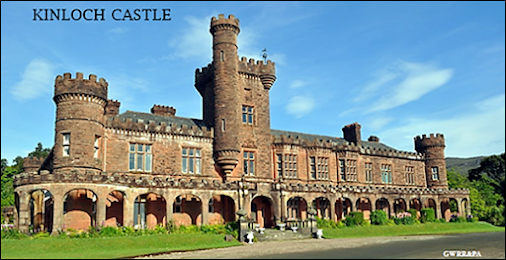


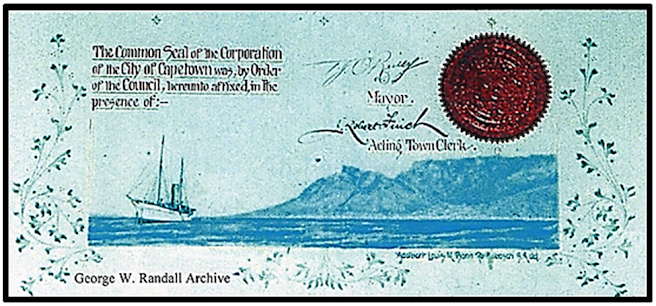








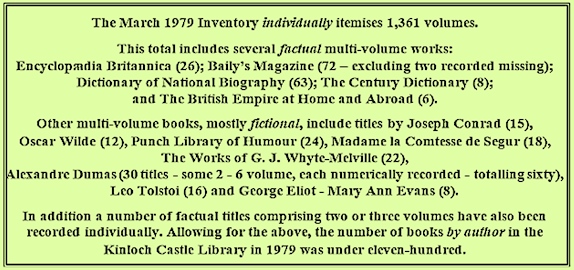









































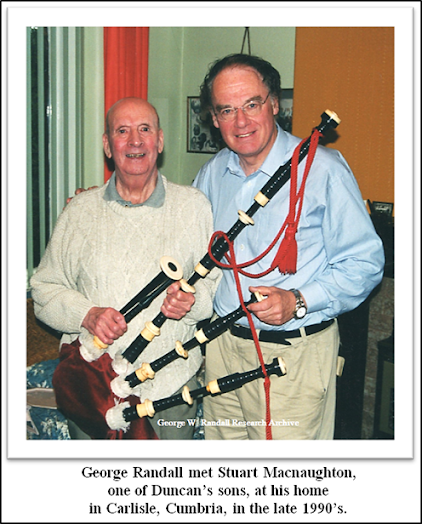












































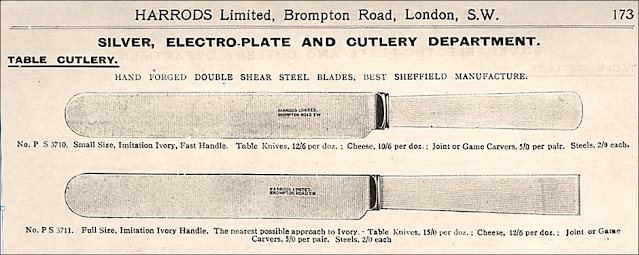




























































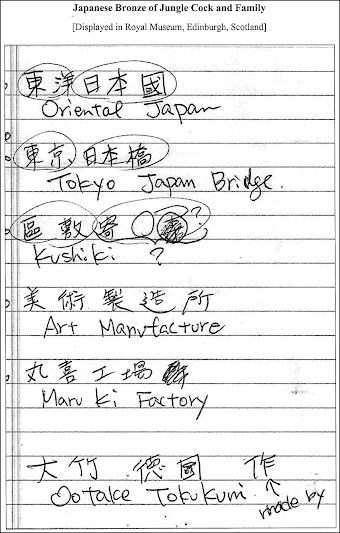






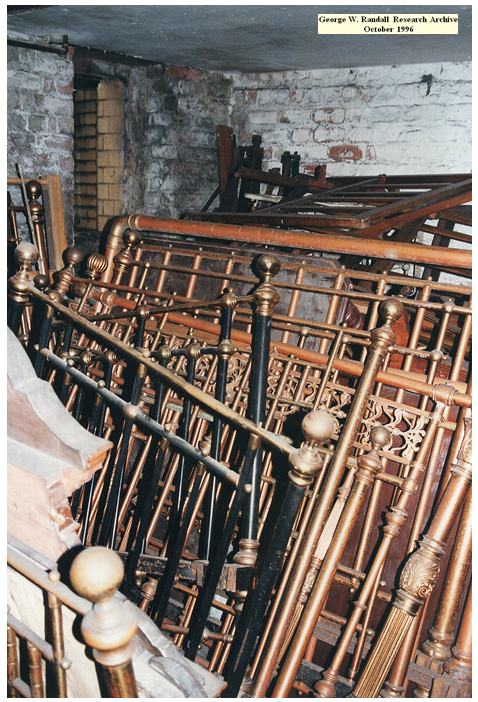







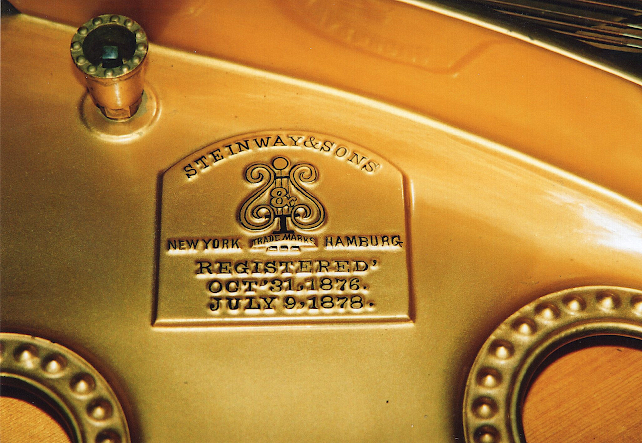





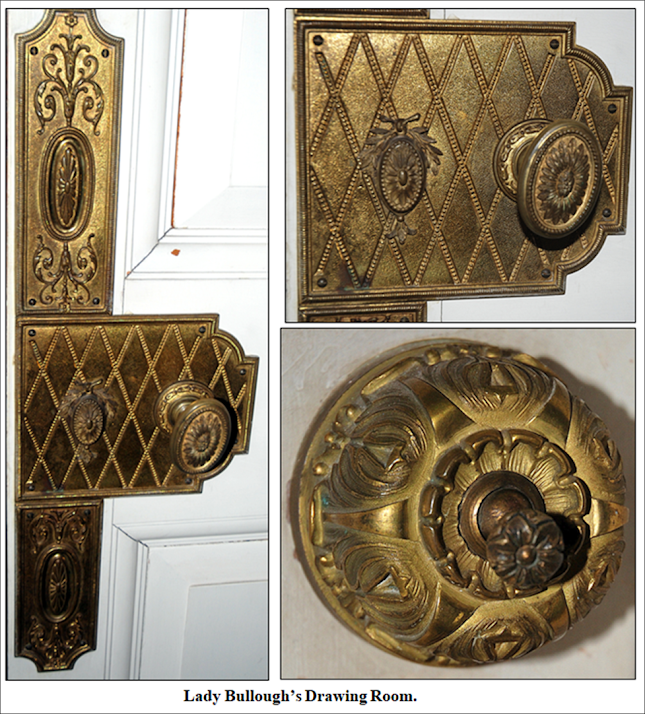

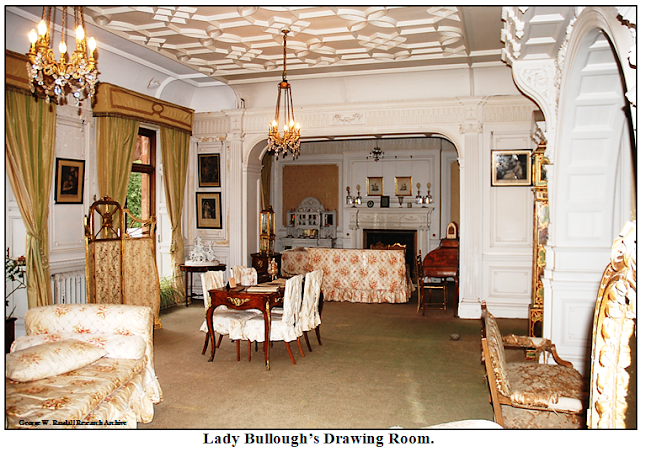

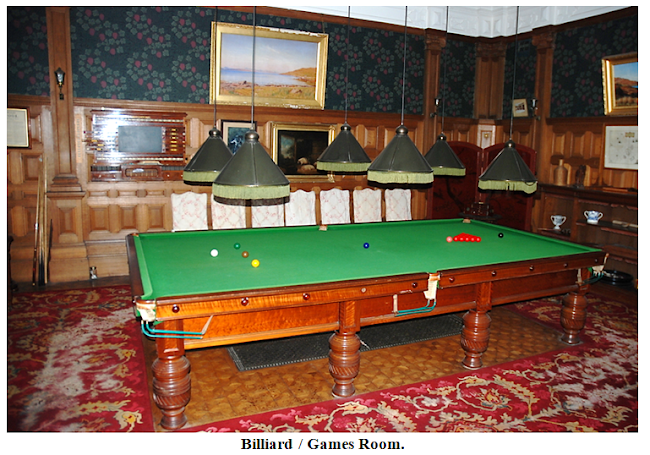










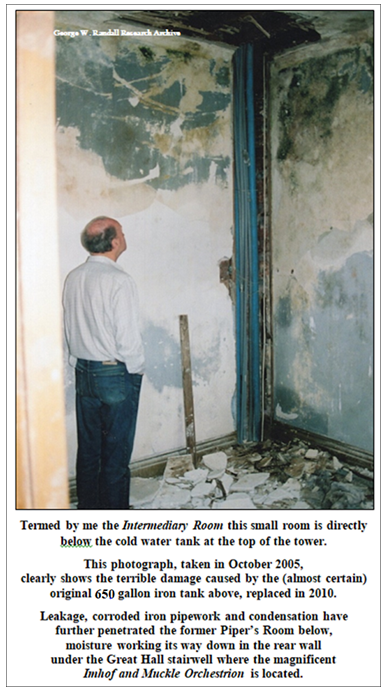






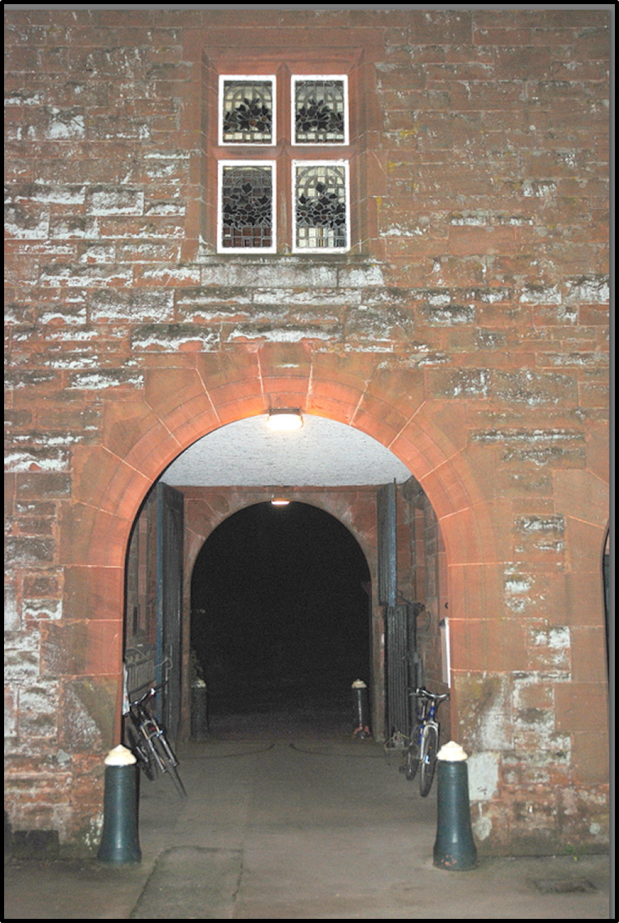





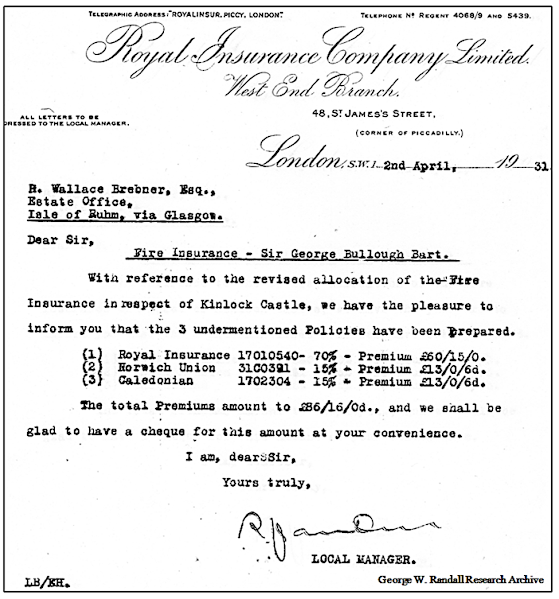
































































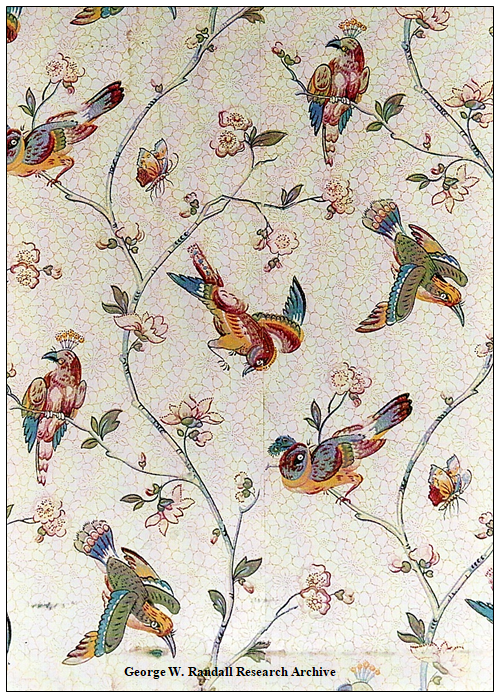










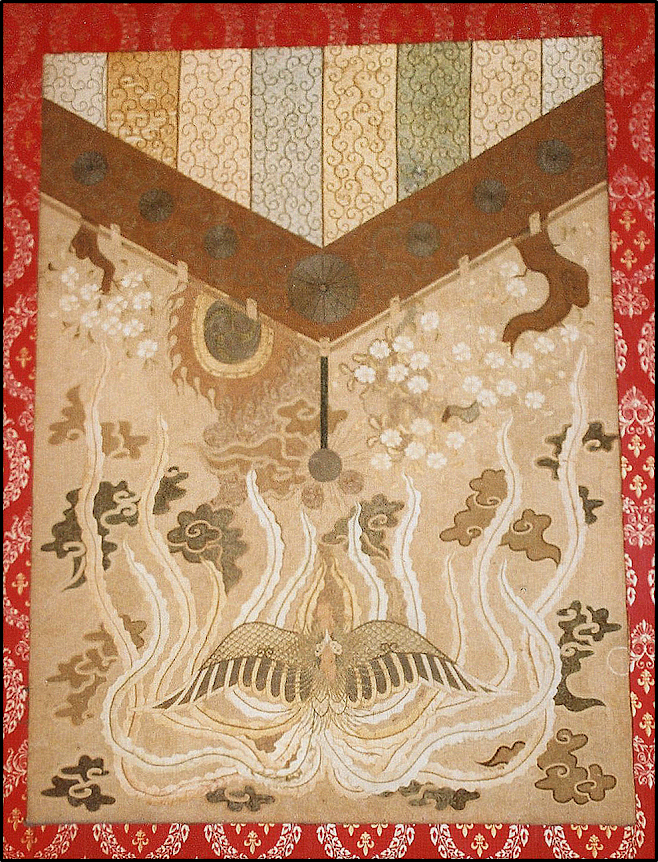
































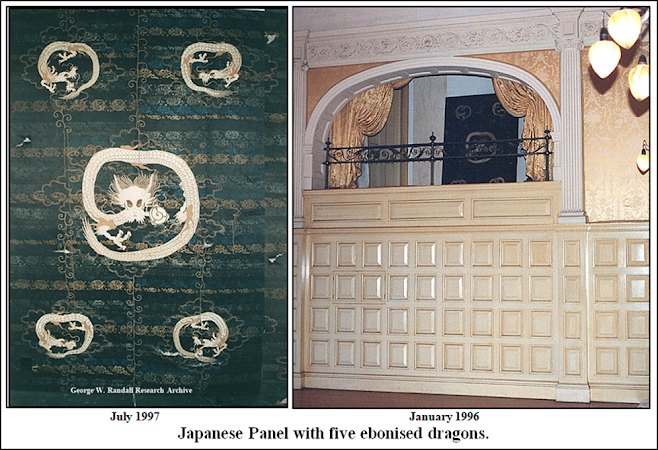




























No comments:
Post a Comment